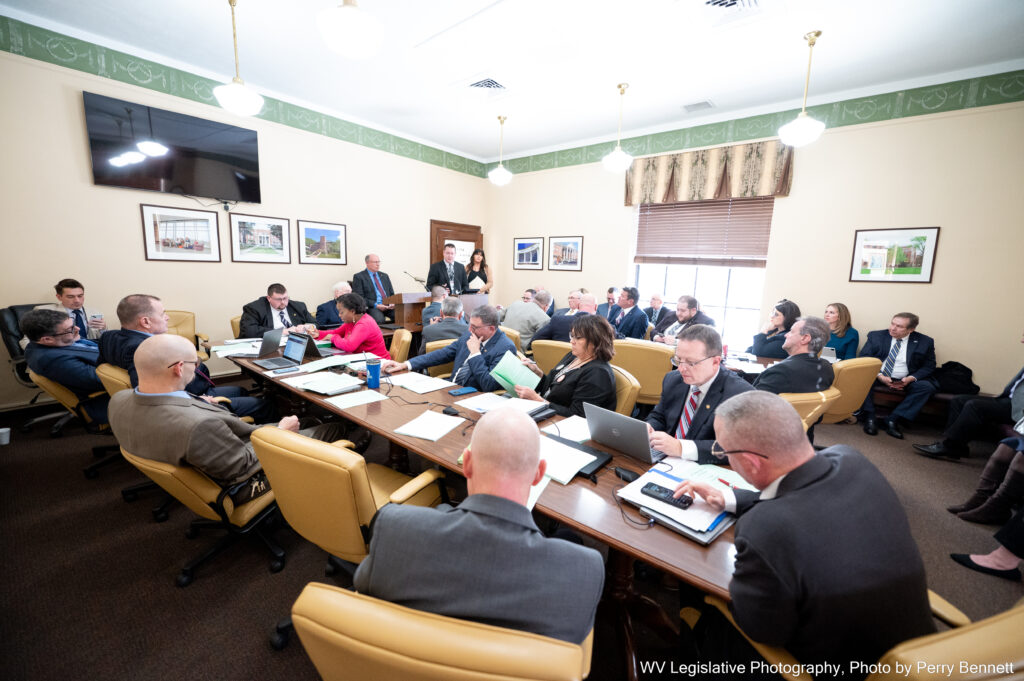The legislature’s education committees started off the week discussing who is responsible for maintaining records for special education, and teaching about human development.
Individual Education Plans (IEPs) and 504 Plans provide accommodations and services to students with disabilities. Accommodation logs are just one form of documentation that some counties have chosen to use, and not a statewide requirement.
“There’s no reason you have to verify that accommodations were given if you’re the general education teacher, but there’s no specific format that has to be used,” said State Superintendent Michele Blatt. “You could document something in your lesson plans, or you could do a narrative at the end of the week that these three children received online or oral reading of their test or two. There’s not a specific way, but there has to be a way to document that accommodations were provided.”
Blatt was asked to speak to the House Education Committee Monday afternoon as they discussed House Bill 4860. The bill changes code to clarify that a general education teacher cannot be made responsible for accommodation logs, because that responsibility falls upon the special education instructor.
The bill’s lead sponsor Del. David Elliott Pritt, R-Fayette, is also a middle school social studies teacher, and was joined by other educators on the committee to praise the bill. He said teachers were required to review and acknowledge each student’s IEP at the start of the school year.
“I don’t know that everyone quite understands what an unnecessary burden it is to go through a sheet of paper every single day for 50 students and check mark every single accommodation to prove that you’re doing your job that you’re already mandated to do by federal law,” Pritt said. “Not only is it increased, it’s creating more legal liability for teachers than less because what if I miss-mark a student accidentally on a day he wasn’t there, or they weren’t there and I mark ‘I provided accommodations’ and I didn’t and then it comes back?”
Committee Minority Chair Del. Mike Pushkin, D-Kanawha, spoke in opposition of the bill. He said he trusts teachers to teach, but recognized the reality that a lot of students in the state have IEPs while there is a shortage of special education professionals and those that are in schools cannot visit every classroom every day.
“I think that it’s not practical to have someone who’s not in the room responsible for signing off on something that they can’t really verify whether it happened or not,” he said. “I share the concern to the superintendent that it could very well not be done, because we’re putting it in statute that the person responsible for it is not there.”
Blatt said there are close to 50,000 students in the state with IEPs.
“That would just be students with special education, with an IEP,” she said. “That does not include 504s and that does not count our gifted or exceptionally gifted students that we have.”
Blatt told lawmakers a general education classroom can have as many as 30 percent special education students in it.
The bill was recommended to the House floor.
Human Growth and Development Requirement
Tuesday morning in the Senate Education Committee, Senators discussed Senate Bill 468. The bill creates the Baby Olivia Act and requires the State Board of Education to provide courses on human growth and development related to pregnancy and specifically inside the womb. The bill specifies that a 3-minute video entitled Meet Baby Olivia – A Never Before Seen Look At Human Life In The Womb be shown in classrooms.
Senators watched the video and voted it to the Senate floor.
A previous version of the bill would have allowed the Attorney General to sue for damages and injunctive relief on behalf of any or all residents or citizens of West Virginia against any person or entity that violated the new Baby Olivia Act. That component of the bill was removed from a committee substitute.




















